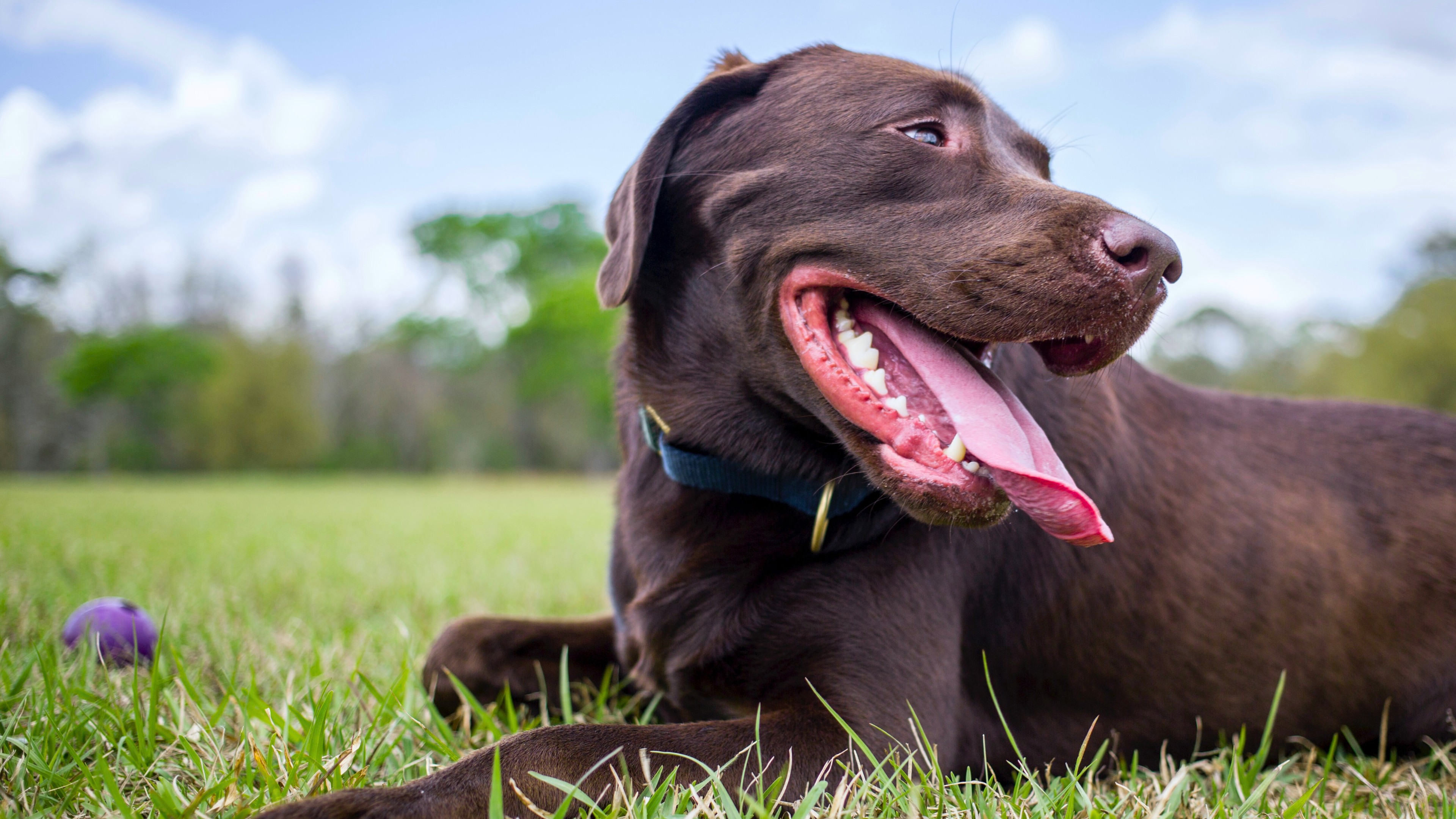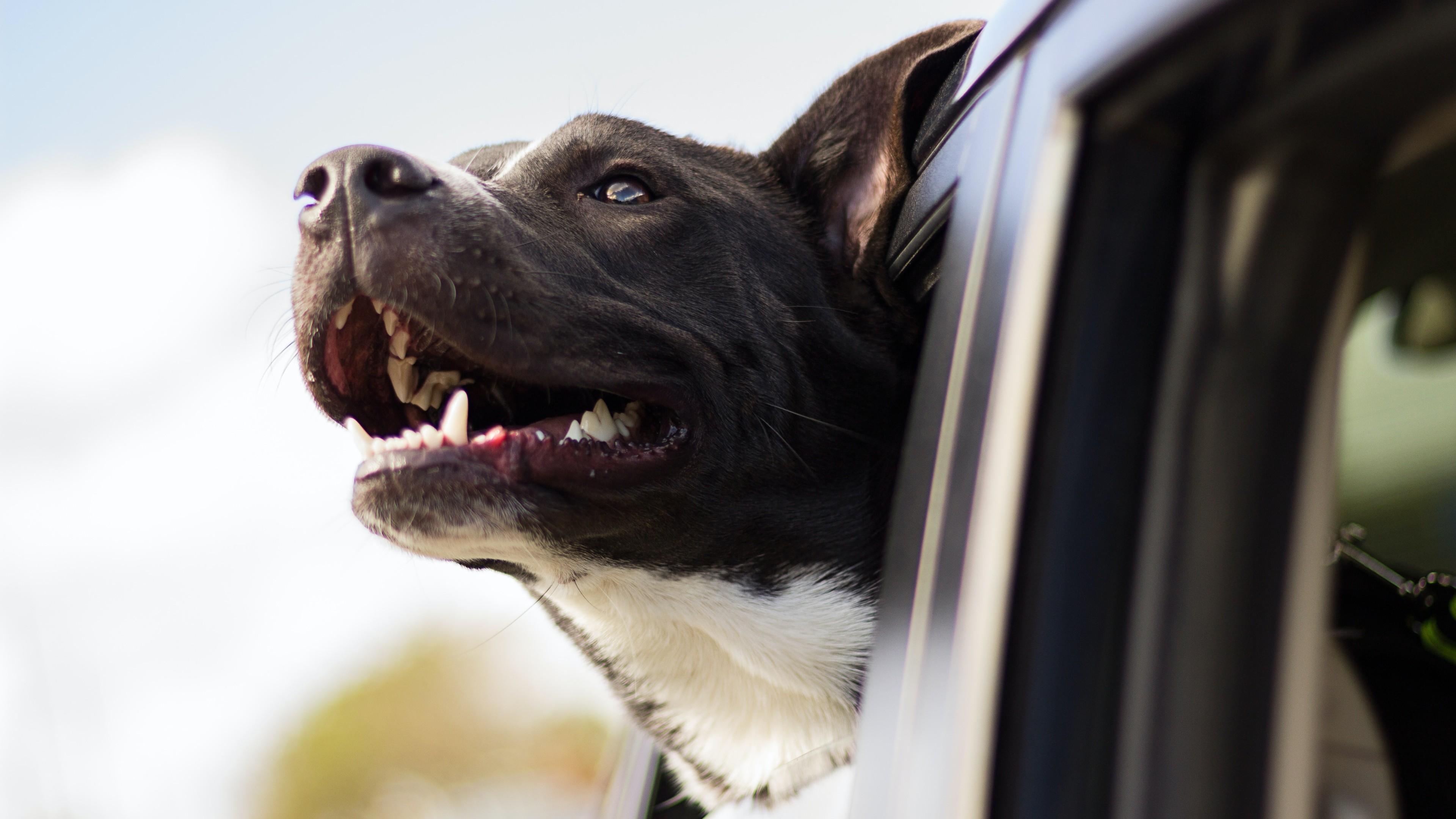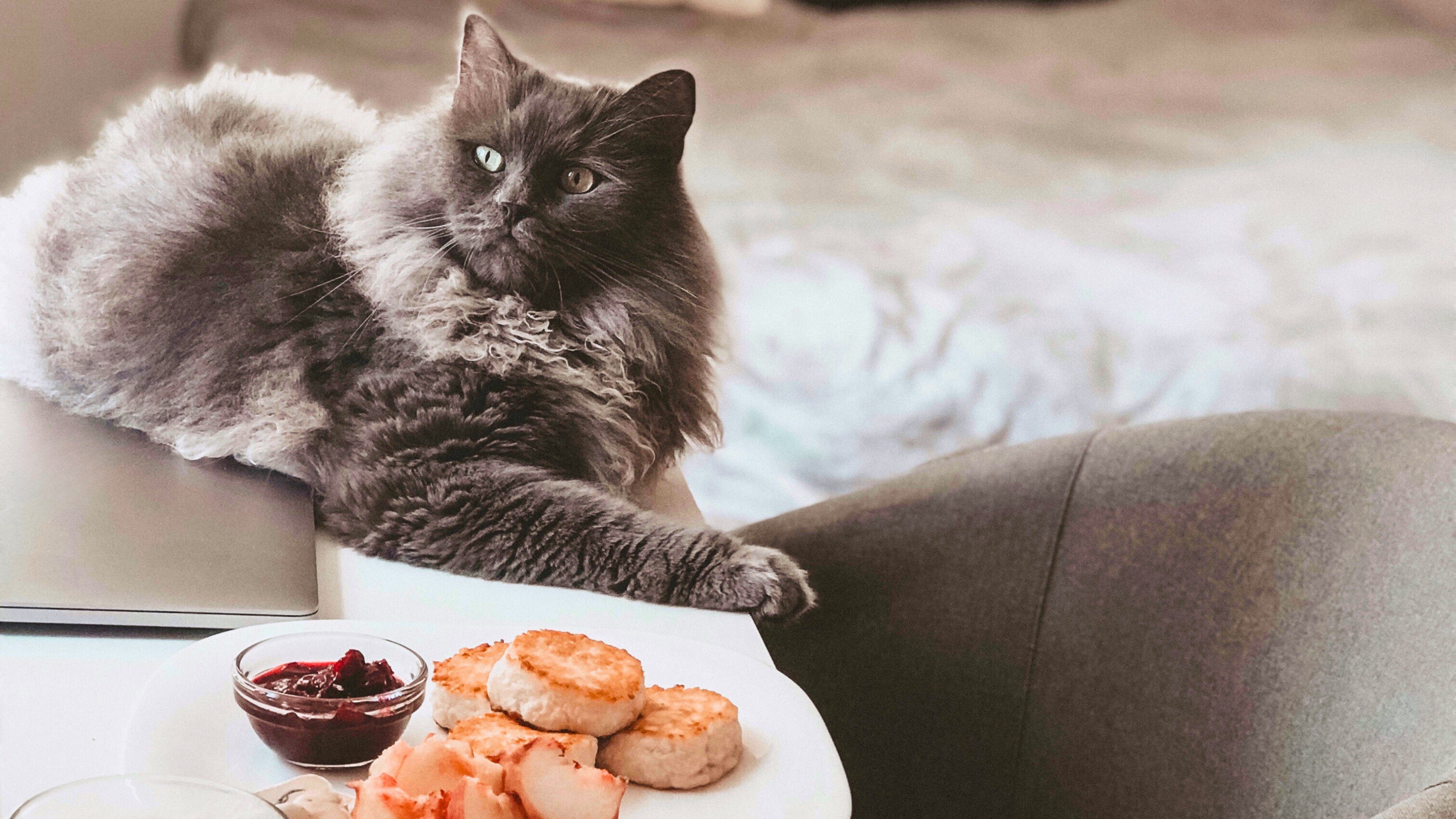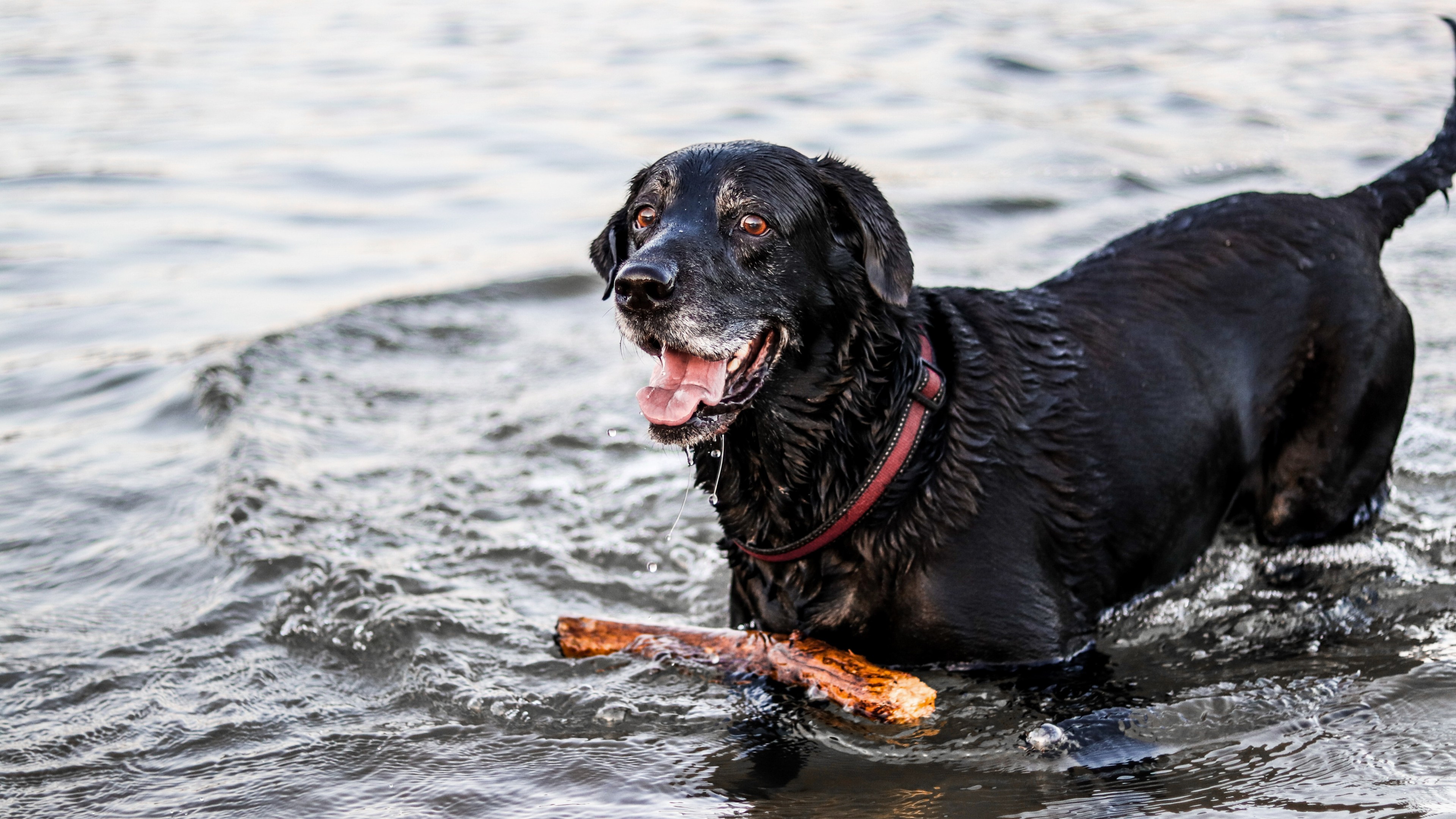
Category
Lifestyle
Summer safety tips for pets
Posted by AMH Team
6m read time
Aug 11, 2023
While this time of year delivers plenty of beautiful moments, this season also requires practicing weather-conscious safety tips for pets. From offering consistent water availability to avoiding leaving pets in hot cars, there are several ways to be a better pet owner during the dog days of summer. Read up on our seasonal safety tips below and consult your vet for more information on your pet’s particular needs.
Recognize overheating symptoms
Pets exhibit several physical symptoms of overheating and heat exhaustion. Signs of overheating in dogs include panting heavily, trouble breathing, and glazed-over eyes. If pets are overheating, their bodies will be warm or hot to the touch, their heartbeat will be faster, and they might walk around drooling or a bit wobbly, almost as if drunk.
More extreme conditions include seizures, vomiting, diarrhea, muscle tremors, and collapsing. If you believe your pet is experiencing heat stroke, or see any signs of overheating, get them into a shady place, offer them water, and contact your vet for guidance right away. They may be unable to drink, so spraying their paws and bellies with cool (not cold or icy) water can help them recover. Just avoid spraying a dog’s fur coat, which can become water-logged and actually increase heat retention.

Keep plenty of water nearby
When pets get overheated, they often look to drink water to cool off. If they can’t easily find some, they may wander around your house, including walking up or downstairs, which tires them out even more.
One of the best tips for keeping pets cool in summer is to make fresh water readily accessible and regularly clean your pets’ bowls. Bacteria and other grime can quickly build up, which is harmful for pets to ingest. You can also consider an automatic pet water fountain, which replenishes water as a pet drinks it. Because the water is free-flowing, your pet will likely be more eager to lap it up.
Beyond that, offer ample shade and limit their time outdoors when temperatures are sweltering. Your pets might still try to run around in extreme heat and exert more energy than they realize.

Avoid leaving animals on hot asphalt or in parked cars
Have you ever stepped on a sidewalk or pool deck with your bare feet and immediately felt a searing hot pain? Most animals experience scorching surfaces the same way. Hot asphalt can burn their paws or feet, and animals with droopier bellies, like a dachshund or lizard, can hurt themselves without realizing it. Much like you might use booties during the winter, consider heat-resistant shoes for your pets when they need to go outside.
Parked cars are another tricky situation. Even with sunshades, a car can quickly overheat. Generally, it’s best to avoid leaving pets in the car when it’s hot out. They’re probably better off at home in a cool environment. Leaving pets in hot cars unattended may also be illegal where you live. More than half of U.S. states have laws around keeping an animal in a vehicle under dangerous conditions. Some of these states also have “good Samaritan” laws that allow other people to rescue an animal if it faces life-threatening danger. You might return from the store to a hefty fine or jail time AND discover your pet is missing!

Beware of leftover food and drink
Barbecues and other outdoor gatherings are commonplace during the summer. While there’s nothing wrong with spending quality time with people you care about, the influx of visitors can introduce new foods and drinks into your home. That additional traffic opens up the opportunity for your pets to ingest something they shouldn’t eat.
For example, drinking alcohol can lead to intoxication in animals, resulting in symptoms like tremors, vomiting, labored breathing, comas, or even death. Chocolate contains components that are toxic to dogs, and grapes and raisins can cause them kidney failure. Birds and rabbits can suffer from cardiovascular damage if they eat avocados. Consuming raw and undercooked meat and bones may lead to bacterial infections, skin and coat issues, or choking.
The American Society for the Prevention of Cruelty to Animals has an extensive list of items to avoid feeding your pets.

Keep windows and doors closed
Opening a door window is a common way to beat the heat. Yet that’s an inviting target for a pet. They may get distracted by a person or another animal outside and take off in pursuit.
An open window on an upstairs floor offers a double threat. Pets, especially cats, may get too close to the ledge and fall out the window, leading to serious injury. Most falls occur when the pet is simply unable to keep its footing. A cat window bed alongside a ledge or balcony can also pose a danger.
It’s usually a good idea to lock and close doors and windows to prevent any possible issues. Make sure screen doors and windows are tightened and secure. Creating the best home environment for your pet will reduce the likelihood of escape or injury.

Watch out for bodies of water
When temperatures push triple digits, few things beat the refreshing feeling of jumping into a body of water. While your pet may enjoy cooling off this way, pay close attention to how they’re doing, and never leave them alone near a pool, lake, or other large area of water.
If your pet is newer to swimming, practice in a contained area of shallower water. Pets should wear life vests as an extra layer of protection.
Whether your pet goes swimming in a pool or a lake, do your best to keep them from drinking the water. Pool water has chlorine, and lakes may have algae or other invasive species that aren’t good for a pet’s tummy.
And if your pet doesn’t like swimming, don’t force the issue. Some dogs are just not able to excel in the water due to their biology. There are other ways for them to beat the heat, like laying near a fan or wearing a cooling vest.

Beware your green thumbs
In the summertime, your garden might be in full swing and looking great. Yet among the flowers blooming and the vegetables growing, there are potentially dangerous plants in wait.
If your pets get hold of a plant, they may try to eat some or all of it. That could lead to gastrointestinal issues or even dangerous levels of toxicity. Similarly, different treatments for lawn pests, such as pesticides, can be harmful if swallowed. Be sure only to use solutions that are pet-friendly.
Not sure what to avoid? Here are poisonous plants for dogs and poisonous plants for cats. If you believe your pet has ingested something poisonous, call your vet or 888-426-4435 for the ASPCA Animal Poison Control Center.

Smart grooming tips
Humans often groom for summertime. We may get a haircut or shave beards to combat the excessive heat of the season. That same treatment doesn’t work for pets.
There’s nothing wrong with grooming your pet within reason. Trimming nails and cutting longer tufts of hair or plucking overgrown feathers is okay. But shaving an animal — particularly a dog — can have harmful effects.
Pet fur is designed to protect the skin of animals. It helps reduce the impact of sunlight and regulate body temperature. Shaving off hair to cool down your pet will usually produce the opposite effect. They’ll be more prone to overheat or suffer from sunburn. Similarly, brushing your pet too aggressively can generate an unsafe amount of heat within their bodies.

Plan a vet visit
Schedule an annual check-up for your pet at least once per year. Since senior pets are more prone to ailments and diseases, plan for a semi-annual visit every six months. Vet visits are an opportunity to test for conditions like heartworm and rabies, and you can get refills on any prescription medications your pet may need.
© 2026 American Homes 4 Rent, LP
All graphics, images, drawings, plans, photos, details, and videos, along with all artistic concepts and depictions in digital renderings and virtual tours and stagings, are for illustration purposes only. The actual appearance and features of the properties and communities may vary. Please verify all community and property details prior to signing a lease. American Homes 4 Rent®, AMH®, AH4R®, Let Yourself In®, AMH Development®, American Residential®, and 4Residents® are registered trademarks of American Homes 4 Rent, LP. 4Rent℠, AMH Living℠, and 4Communities℠ are service marks of American Homes 4 Rent, LP. AMH refers to one or more of American Homes 4 Rent, American Homes 4 Rent, L.P., and their subsidiaries and joint ventures. In certain states, we operate under AMH, AMH Living, or American Homes 4 Rent. Please see www.amh.com/dba to learn more.



